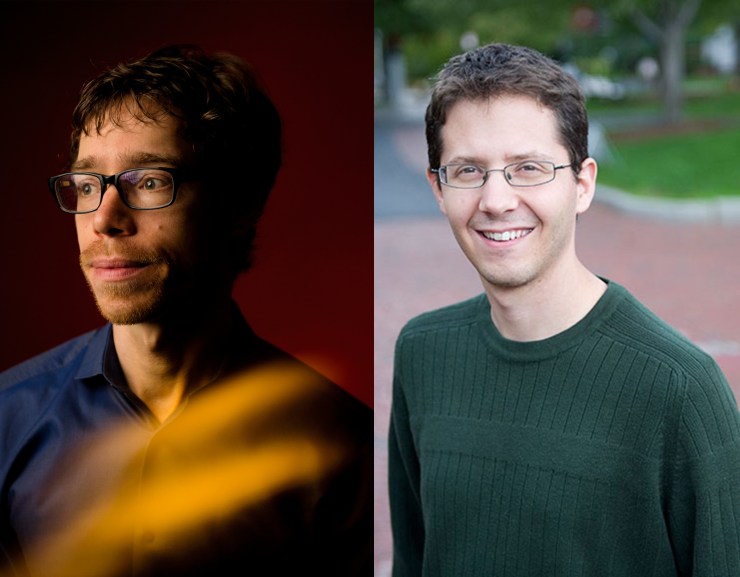Here’s why spite spreads in people–and thrives in politics

Last week, a violent mob of Trump supporters stormed the United States Capitol, seeking to delay certification of the 2020 presidential election results. The riot failed to achieve its goal, and dozens have been arrested and charged. Why did so many people risk their safety, their employment, and tarnish their criminal record for the purpose of harming others? One potential factor at play may be the infectious nature of spite.
Spite is a puzzling human behavior. It’s the act of causing harm to another while gaining no benefit for one’s self. And although it is costly to all involved, a new study finds that it is also highly contagious.

Left, Christoph Riedl, associate professor of information systems in the D’Amore-McKim School of Business and Khoury College of Computer Sciences. Photo by Adam Glanzman/Northeastern University. Right, Rory Smead, associate professor of philosophy and the Ronald L. and Linda A. Rossetti Professor for the Humanities in Northeastern’s College of Social Sciences & Humanities. Northeastern University file photo.
In a paper published yesterday in Nature Communications, Northeastern researchers provide a novel explanation for how spiteful behavior originates and spreads. Using a computational model that simulates human interactions, researchers observed spite spread throughout a dynamic network until every “agent” became spiteful, and cooperation ceased entirely.
Traditionally, mathematical models of human behavior have lacked an important component: they aren’t dynamic, meaning the simulated actors don’t behave like real people do within real social circles. Old models were built on a uniform population that interacted randomly. This kept the math simple but made the network interactions unrealistic. The new dynamic model used in the study allows agents to choose whom they mingle with, like people do in real life.
“The network structures we find in the simulation are similar to what we know human social networks look like,” says Christoph Riedl, associate professor of information systems in the D’Amore-McKim School of Business and Khoury College of Computer Sciences and co-author of the paper. “The dynamic model is not random, it’s meaningful and realistic. It seems to pick up on how humans actually behave.”
The model showed that spiteful agents targeted non-spiteful players, draining their resources so the spiteful agents looked better in comparison. This resulted in the initially non-spiteful agents realizing they were worse off and perpetuating the spite to get ahead. Researchers found that it continued to spread until there were no cooperative players left.
“Spite is a net loss for everybody, but it changes the relative standings of individuals,” says Rory Smead, associate professor of philosophy and the Ronald L. and Linda A. Rossetti Professor for the Humanities in Northeastern’s College of Social Sciences & Humanities and co-author of the paper. Zachary Fulker, a PhD student in Northeastern’s Network Science Institute, was the paper’s lead author.
That perceived relative advantage is what makes spite so infectious in human networks. It’s also the reason spite thrives in politics.
“Politics is often a zero-sum game. In order for you to win, the other guy has to lose,” Smead says. “Certain politicians may view these political interactions as situations in which cooperation is not possible—situations in which they might be willing to pay costs in order to make sure the other side suffers even more. It’s those relative tradeoffs where spite finds a home.”
In political elections, it doesn’t matter how many total votes are cast, only that one side gets more votes than the other. This is an environment ripe for spite.
“If there is voter suppression and everyone gets fewer votes, that’s not necessarily bad for me as long as I get more than you,” Riedl says.
The outcome for a society infected by spite may look bleak, given how contagious this behavior can be. But understanding the obstacles that undermine cooperation can help get us closer to achieving it.
“It’s an important piece to the broader puzzle of how we can all get along better,” says Smead.
For media inquiries, please contact media@northeastern.edu.





